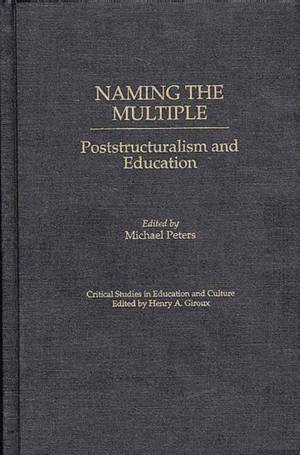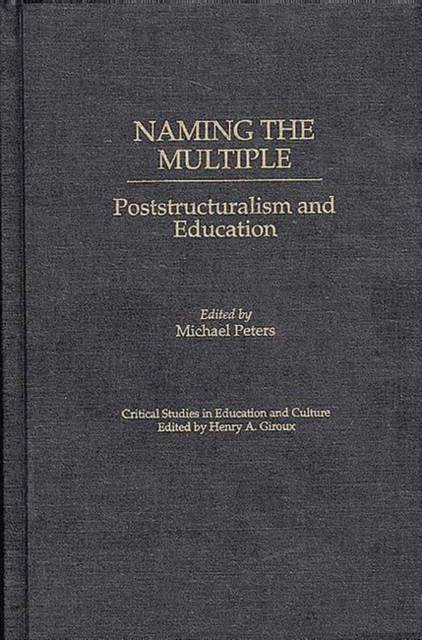
Door een staking bij bpost kan je online bestelling op dit moment iets langer onderweg zijn dan voorzien. Dringend iets nodig? Onze winkels ontvangen jou met open armen!
- Afhalen na 1 uur in een winkel met voorraad
- Gratis thuislevering in België vanaf € 30
- Ruim aanbod met 7 miljoen producten
Door een staking bij bpost kan je online bestelling op dit moment iets langer onderweg zijn dan voorzien. Dringend iets nodig? Onze winkels ontvangen jou met open armen!
- Afhalen na 1 uur in een winkel met voorraad
- Gratis thuislevering in België vanaf € 30
- Ruim aanbod met 7 miljoen producten
Zoeken
Omschrijving
Poststructuralism--as a name for a mode of thinking, a style of philosophizing, a kind of writing--has exercised a profound influence upon contemporary Western thought and the institution of the university. As a French and predominantly Parisian affair, poststructuralism is inseparable from the intellectual milieu of postwar France, a world dominated by Alexandre Kojève's and Jean Hyppolite's interpretations of Hegel, Jacques Lacan's reading of Freud, Gaston Bachelard's epistemology, George Canguilhem's studies of science, and Jean-Paul Sartre's existentialism. It is also inseparable from the structuralist tradition of linguistics based upon the work of Ferdinand de Saussure and Roman Jacobson, and the structuralist interpretations of Claude Lévi-Strauss, Roland Barthes, Louis Althusser, and the early Michel Foucault. Poststructuralism, considered in terms of contemporary cultural history, can be understood as belonging to the broad movement of European formalism, with explicit historical links to both Formalist and Futurist linguistics and poetics, and with aspects of the European avant-garde, especially André Breton's surrealism. Each essay in this unique collection by and for educators is devoted to the work and educational significance of one of ten major poststructuralist philosophers.
Specificaties
Betrokkenen
- Auteur(s):
- Uitgeverij:
Inhoud
- Aantal bladzijden:
- 288
- Taal:
- Engels
- Reeks:
Eigenschappen
- Productcode (EAN):
- 9780897894852
- Verschijningsdatum:
- 18/06/1998
- Uitvoering:
- Hardcover
- Formaat:
- Genaaid
- Afmetingen:
- 164 mm x 243 mm
- Gewicht:
- 607 g

Alleen bij Standaard Boekhandel
+ 322 punten op je klantenkaart van Standaard Boekhandel
Beoordelingen
We publiceren alleen reviews die voldoen aan de voorwaarden voor reviews. Bekijk onze voorwaarden voor reviews.











